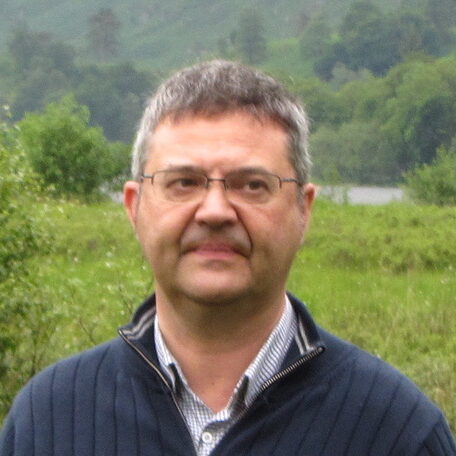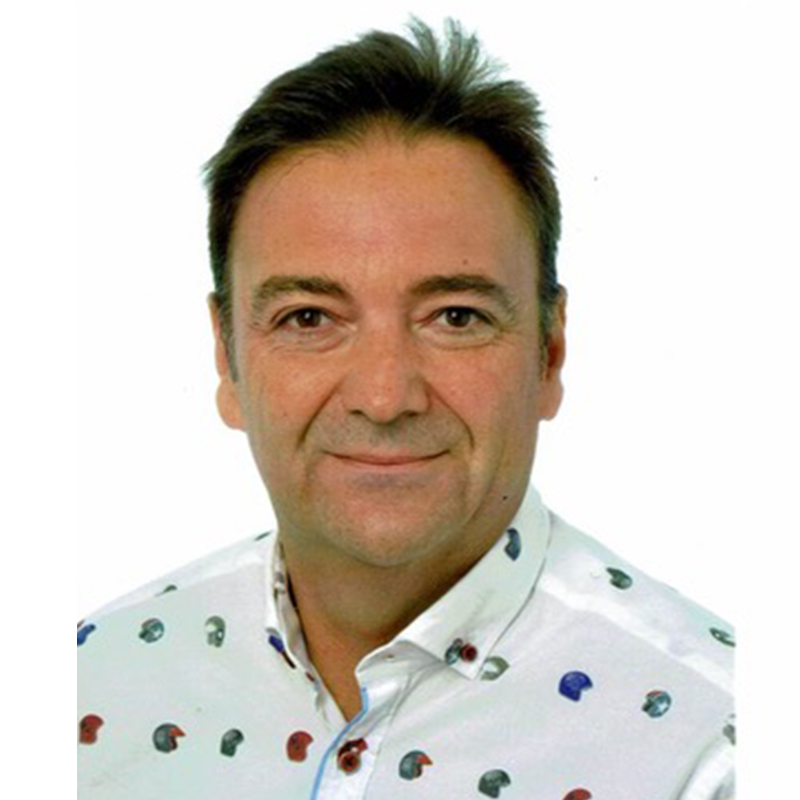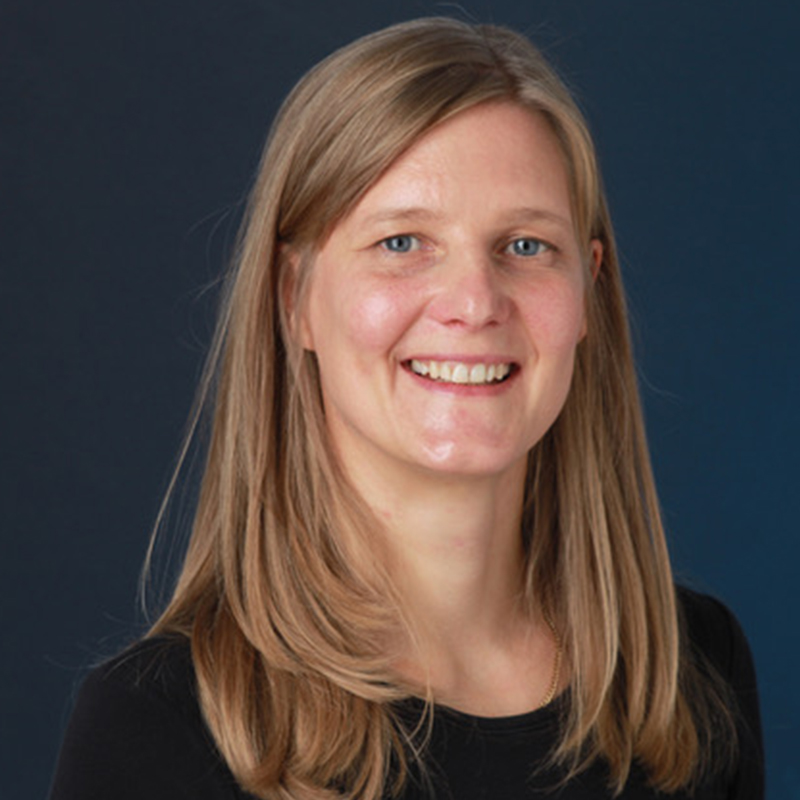AREA
CAA/ Agricultural and Agri-food sciences
SUB AREA
AYF/ Agriculture and forestry
KEYWORDS
LEGUMES; SYMBIOTIC NITROGEN FIXATION; RHIZOBIUM; ABIOTIC STRESS; ETHYLENE; AGRICULTURE
SUPERVISORY TEAM

PROF. CESAR ARRESE-IGOR SÁNCHEZ
Supervisor
Prof. Arrese-Igor obtained his BSc + MSc in Biological Sciences in 1985 by the University of the Basque Country. Subsequently, he obtained his PhD in 1990 with the maximum qualification (cum laude) and receiving the Extraordinary doctorate award. During his PhD and as part of his postdoc he did research stays in the Institute of Grassland and Environmental Research (BBSRC) in Aberystwyth (UK). In 2007-08 he was a visiting Scientist in the Dept. Agronomy at the University of Florida (USA). He was the recipient of the 1st National Award as Young (under 35) Spanish Researcher in Plant Physiology in 1995. In 2001 he became Full Professor of Plant Physiology at the UPNA. He is the Director of Research of the Plant Physiology and Agrobiology Group at the UPNA since 2015. He has been awarded the recognition by UPNA of “Excellence in Research”. His studies on the regulation of nitrogen fixation in legume plants have generated 69 papers in high impact international journals of Plant Sciences and Agronomy. Among these, 56 are in the Q1 (among them, 29 D1). 2 are ranked among the 1% highly cited papers (Essential Science Indicators). Additionally, he has participated in other 53 contributions, being the editor of 3 books, and participated in over 200 conferences as speaker, chairman of sessions, and member of scientific and organizing committees.
Metrics: h = 27, Clarivate-WoS, Core Collection; h = 29, Scopus

SANTIAGO CENOZ
Co-Supervisor
Santiago Cenoz holds a degree in Biology by the Universidad de Navarra (Spain). After working in several multinational companies in the Agrochemistry sector for several years, he founded, together with Jean Paul Labat, a company named Delso Fertilizantes Blue Agro (https://dfblueagro.com), recently incorporated into the Delso Fertilizers group. The company is located in the Technological Park in San Sebastian (Basque Country) and it has commercial links at the national and international levels. Besides their industrial and commercial activities, the founder partners, Santiago and Jean Paul, have also developed a R+D+I Center focused on the development of new products and applications for the Agriculture and Farming sector, located in the CEIN in Noain (Navarre), designated Blue Agro Bioscience S.L.
During his career, Santiago has acquired a deep knowledge in the field of plant physiology and plant growth promotion and plant defense mechanisms, with the development of novel products and generating several patents currently in exploitation. He also has a solid trajectory in Research and Development projects in collaboration with academic institutions, including the European Union FEDER-funded projects BIOFITOLEV, 3DFERTILIZER, BIOVID, VITES QUALITAS, HAZILORE and BIOFILT, as well several other research projects at the national level, collaborating with top companies such as REPSOL (ESFER project). His view of the market, in combination with a deep understanding of research translation strategies, will provide an excellent non-academic mentoring.

ASSOCIATE PROF. STEFANIE WIENKOOP
Co-Supervisor
Stefanie Wienkoop studied BSc Biology at the Technical University of Darmstadt (Germany) and completed her PhD in 2000. After a brief stay at the University of British Columbia (Canada) and a postdoctoral MSCA Fellowship at the National Laboratory Risø (Denmark), she joined the
laboratory of Wolfram Weckwerth at the Max-Planck Institute of Molecular Plant Physiology,
Golm/Potsdam (Germany) in 2002. Since 2008 she is group leader and Vice Head of the Division of Molecular Systems Biology at the University of Vienna (Austria). Since 2017 she is Associate Professor at this university.
Dr. Wienkoop has published more than 82 papers in peer-reviewed journals (3500 citations, H-index 35, Scopus), 18 book chapter sand 7 invited ‘news and views’ articles. She has given >35 invited talks at national and international conferences or institutions. She has obtained 7 research grants as a PI and host with a total budget of approx. 4.6 million €.
RESEARCH GROUP
DESCRIPTION
The Plant Physiology and Agrobiology group belongs to the Science Dept. of the UPNA. The group is specialized in the study of legume plants, which are key elements both for human nutrition and animal feed due to their high protein content and their ability to establish nitrogen-fixing symbiosis with Rhizobium bacteria. This symbiosis provides a source of reduced nitrogen into the environment, without the negative impact of the excessive application of nitrogen fertilizers. Within the group, the fellow will join the symbiosis team, working on the regulation of symbiotic nitrogen fixation, with a focus on the role of the plant hormone ethylene and its interaction to the plant response to drought stress conditions.
The Plant Physiology and Agrobiology group collaborates actively with academic partners at the international and national levels, as well as with companies, particularly in the development of fertilizers, plant nutrition and nanotechnology. The group has received continuous funding from regional, national, and European grants, having previous experience in the application and management of European projects such as the EU FP6 “Grain legume” project and the FP7 “SymBioSignal” IOF Marie Curie Action. The host group is one of the best positioned in the university ranking and periodically receives excellent scores by the Spanish Agency for Quality Assessment and Accreditation (ANECA), following gender balance guidelines.
Members: 7 permanent researchers, 14 postdocs and PhD students, and one permanent technician.
OUTPUTS OF RELEVANCE
In the last 5 years, more than 25 papers mostly in the Q1 of Plant Science in journals such as Plant Physiology, New Phytologist, Journal of Experimental Botany and Frontiers in Plant Sc.
EU FP6 “Grain legume” project (FP6 FOOD-CT-2004-506223)
Over 24 research projects at the national and international level. Spanish Ministry of Economy and Competitiveness funds for over 20 years, best-qualified projects at the national level (see RTI2018-09463-BC22, AGL2014-56561-P, or AGL2011-30386-C02-01, among others), with a total amount more than 1.5M €.
Patent PCT 2008/070144.
NETWORK OF COLLABORATORS
University of Vienna, Austria (Stefanie Wienkoop)
Company BlueAgro, Spain (Santiago Cenoz)
INRAE, Center National de la Recherche Scientifique – CNRS, France (Andreas Niebel and Fernanda de Carvalho-Niebel)
Oxford, UK (Phillip Poole).
Wisconsin (Jean Michel Ané) and Univ. of California Davis (Douglas R. Cook), USA
Australia (Michael Djordjevic).
University of the Basque Country, as well as several groups at the CSIC at the national level.
CAREER DEVELOPMENT
PROPOSED SECONDMENT
A research stay of 6 months will be offered at the company DF-BlueAgro. This secondment will provide new insights into how companies work to translate basic research into commercial and industrially viable products and applications. As part of this process, the research stay will make possible the validation of field essays based on different crops, environmental conditions and countries, as well as the optimization of methodologies for the implementation, production and development of products at industrial scale and the analysis of such viable products to comply with the national and international regulatory framework.
Additional research stays will be offered to the fellow to be trained in novel techniques in functional biology and proteomics: at the University of Vienna, the fellow will receive training on plant proteomics, relative and quantitative protein profiling (LC/MS-MS) and plant-microbial interactions, and at the INRAE/CNRS in Toulouse (France), the fellow will learn state-of-the-art techniques applied to molecular and functional studies of the legume-rhizobium symbiosis, including imaging techniques (high resolution microscopy), plant transformation, and gene silencing technologies such as CRISPR-Cas9. The fellow will be co-supervised by Dr. Fernanda de Carvalho-Niebel and Dr. Andreas Niebel, who are the directors of the CNRS and count with numerous projects and publications in the field (see “Others”).
DESIRABLE DEVELOPMENT
Employability
Building collaborative networks
International mobility
Fundraising (grants, projects)
Teaching and supervision.
Training
TRAINING SKILLS
Project management
Time management
Communication skills
IPR and technology transfer
Open science
Ethics
Leadership, autonomy, independent thinking.
Writing grants, CV, interviews
Spanish
Specific skills: training in R
OTHERS
The host group offers an international environment where the fellow will gain knowledge on molecular plant physiology and a deeper understanding of the symbiosis established between legume plants and symbiotic bacteria. The research will be focused on different aspects of the interaction, including the effects of the plant hormone ethylene, but also the regulation of symbiotic nitrogen fixation under drought stress, one of the core expertise of the lab. The secondments provided will complete his/her training by offering different environments to develop further skills (both soft and technical skills) and broaden his/her perspective of the field. The group is also active in outreach activities and public science dissemination events, at which the fellow will be integrated.
The fellow will also work under the co-supervision of Dr. Estibaliz Larrainzar, a Ramón y Cajal fellow, with a solid background in the study of the legume-Rhizobium interactions. Estibaliz completed her PhD in Plant Physiology at the UPNA in 2009 (extraordinary award) and did a 3 year stay at the University of California, Davis, funded by postdoctoral Fulbright and MSCA IOF fellowships. Back in Spain, she obtained a Juan de la Cierva fellowship and, more recently, her current contract has allowed the establishment of a new research line in the group focused on the role of ethylene in the Medicago truncatula-Sinorhizobium meliloti symbiosis. Metrics: h = 15, Clarivate-WoS, Core Collection; h = 16, Scopus. http://www.unavarra.es/pdi?uid=7766
Additional research stays will be offered at the Endosymbiotic infection and nodule development Group at the INRAE/CNRS in Toulouse (France), directed Dr. Fernanda de Carvalho-Niebel and Dr. Andreas Niebel. https://www6.toulouse.inrae.fr/lipm_eng/Research/Endosymbiotic-infection-and-nodule-development/Members


